As we celebrate Women’s History Month in October, we reflect on the outstanding achievements and contributions of women and girls throughout Canada’s history.
Throughout U of G’s history, which started 150 years ago with the founding of the Ontario Agricultural College, there have been many remarkable women who have had an incredible impact, made innovative discoveries, and trailblazed a path for other women. Here are a few of their stories.
Adelaide Hoodless
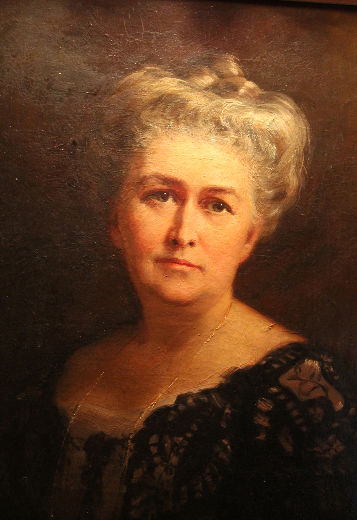
Adelaide Sophia Hoodless, born on February 27, 1858, in St. George, Canada West (now Ontario), was a prominent Canadian educational reformer. Adelaide married John Hoodless, the son of a successful Hamilton furniture manufacturer, in 1881. They had four children, but tragedy struck when their youngest son, John Harold, died at 14 months old. This loss motivated Adelaide to ensure that women had the knowledge to prevent such tragedies.
She became the second president of the Hamilton, Ontario Young Women’s Christian Association (YWCA) in 1895 and used this platform to advocate for domestic science education. Adelaide founded the international women’s organization known as the Women’s Institute and played a crucial role in establishing the Macdonald Institute in 1903, one of the University of Guelph’s founding colleges.
The Macdonald Institute was created to improve agricultural efficiency and modernize rural society by providing advanced learning in domestic science for young rural women. It offered a variety of programs, including a diploma in domestic science, a two-year Housekeeping Certificate, and many three-month short courses. By the 1950s, it had become the largest degree-granting home economics program in Canada.
Susannah Steckle
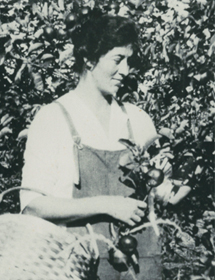
Susannah Isabella Steckle was born on March 29, 1898, in King’s County, Nova Scotia. She made history by becoming the first woman in Ontario to graduate from an agricultural course at the Ontario Agricultural College in Guelph in 1921. She then went on to plant the first commercial orchard in Waterloo county. Susannah’s spirit and dedication to agriculture set a precedent for women in the field, breaking barriers and paving the way for future generations.
Throughout her life, Susannah remained committed to advancing agricultural education and promoting women’s involvement in the industry and was the first elected woman president of the Nova Scotia Fruit Growers’ Association. Susannah and her husband John donated Steckle Woods to the City of Kitchener as conservation land in 1967, which you can still explore today. Her contributions to the field were significant, and her legacy continues to inspire those who follow in her footsteps.
Elizabeth Barrie Carpenter
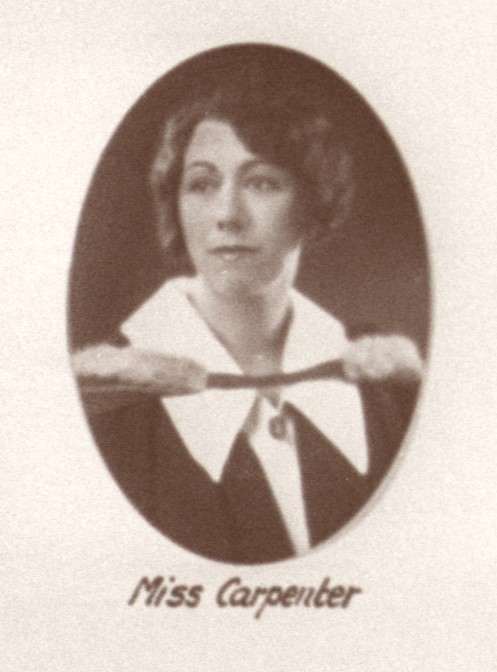
Elizabeth Barrie Carpenter was a trailblazer in the field of veterinary medicine. She made history as the first woman veterinarian to graduate from the Ontario Veterinary College (OVC) in 1928. Elizabeth came to OVC from Detroit, Michigan and eventually was a stage performer before starting veterinary school. After she graduated, she eventually settled in California where she started a practice that focused on feline medicine, following in the footsteps of her father who also trained at OVC and operated a small animal practice in Detroit, Michigan.
Her pioneering achievement of being the first women veterinarian to graduate from OVC opened doors for many women in the veterinary profession, which was predominantly male at the time. Throughout her career, Elizabeth Barrie Carpenter was known for her dedication to animal health and welfare. Her contributions to veterinary medicine have left a lasting impact, inspiring future generations of women veterinarians to pursue their passion and excel in the field.
Margaret McCready
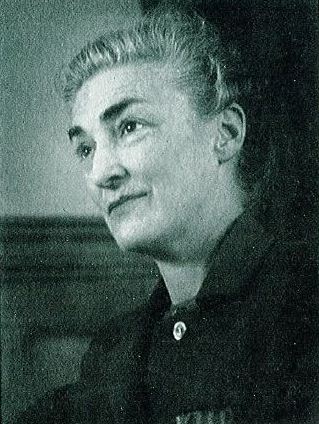
Margaret McCready was a distinguished academic and administrator in the field of home economics. She served as the director of the Household Science program at Macdonald College, McGill University, starting in 1939. In 1949, she became the dean of the Macdonald Institute, where she brought her extensive experience and academic prestige to the role. McCready held a PhD and had several scholarly publications to her credit, along with training and experience in both dietetics and applied human nutrition.
During her tenure at the Macdonald Institute, McCready was instrumental in modernizing the curriculum and expanding the programs offered. She was particularly interested in developing a food management program and attracting male students to the institute. Her leadership and vision helped shape the Macdonald Institute into a leading educational institution in home economics and related fields.
Vandana Shiva
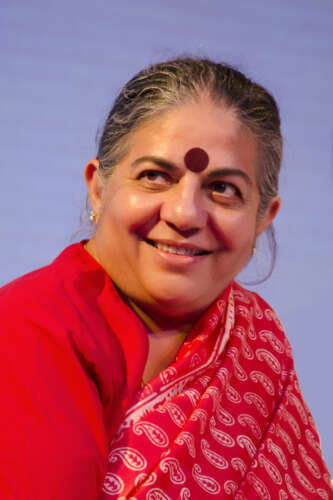
Dr. Vandana Shiva, born on November 5, 1952, in Dehradun, India, is a renowned Indian scholar, environmental activist, food sovereignty advocate, ecofeminist, and anti-globalization author. She holds a master’s degree in the philosophy of science from the University of Guelph and a PhD in philosophy from the University of Western Ontario, where she focused on the philosophy of physics.
Shiva is the founder of the Research Foundation for Science, Technology, and Ecology (RFSTE), an organization dedicated to developing sustainable agricultural practices. She is also the founder of Navdanya, a movement promoting biodiversity conservation and organic farming. Often referred to as the “Gandhi of grain,” Shiva has written more than 20 books and is a prominent figure in the anti-GMO movement. Her work has earned her numerous awards, including the Right Livelihood Award and the Sydney Peace Prize.
Roberta Bondar
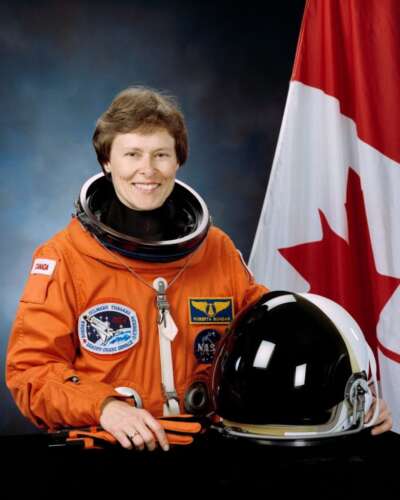
Dr. Roberta Lynn Bondar, born on December 4, 1945, in Sault Ste. Marie, Ontario, is a renowned Canadian astronaut, neurologist, and researcher. She holds a Bachelor of Science in zoology and agriculture from the University of Guelph, a Master of Science in experimental pathology from the University of Western Ontario, a PhD in neurobiology from the University of Toronto, and a Doctor of Medicine from McMaster University.
In 1992, Bondar became the first Canadian woman and the first neurologist to travel into space as a payload specialist on the NASA Space Shuttle Discovery during Mission STS-42. She conducted over 40 experiments in the Spacelab, focusing on the adaptability of the human nervous system to low gravity. After her space mission, she continued her work in space medicine and became a consultant and speaker in the business, scientific, and medical communities. Bondar has received numerous honors, including the Order of Canada and the Order of Ontario.
Valerie J. Davidson, P. Eng
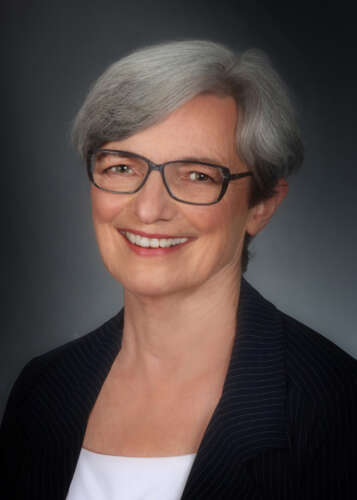
Dr. Davidson is a University Professor Emerita at the University of Guelph’s School of Engineering. She was a professor from 1988 to 2012, known for innovative teaching in bio-engineering and interdisciplinary research that spanned chemical engineering, food science and public health.
She is a passionate advocate for diversity in Science, Technology, Engineering and Mathematics (STEM). While serving as the Natural Sciences and Engineering Research Council (NSERC) Chair for Women in Science and Engineering (Ontario region), she launched the Ontario Network of Women in Engineering (ONWiE), which connects all 16 engineering schools and faculties across Ontario. ONWiE’s flagship program, Go ENG Girl, continues to inspire thousands of young girls to explore engineering through hands-on activities and mentorship.
Her efforts have had a lasting impact on the engineering community, with more than 56,000 girls and women participating in programs initiated during her term as NSERC Chair. Davidson continues to advocate for more women in the engineering profession through her involvement with the Ontario Society of Professional Engineers and Professional Engineers Ontario.
Canisia Lubrin
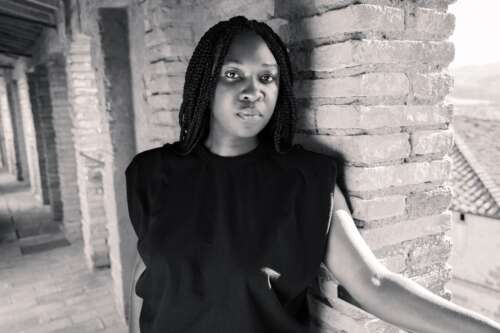
Canisia Lubrin, assistant professor and graduate program coordinator in the Creative Writing Master of Fine Arts program at Guelph Humber, is an acclaimed writer, editor and academic whose work explores ideas of social justice and the limits and possibilities of art, form, and languages. Her first book, Voodoo Hypothesis was named one of 10 “must-read” books of 2017 by the League of Canadian Poets and one of 2017’s best books by CBC books. Voodoo Hypothesis is described by WindhamCampbell.org as “a wildly ambitious work of speculative poetics, brilliantly combining physics, philosophy, and pop culture. The book investigates… state-sanctioned violence against Black individuals and cultures—all while remaining rooted in a vision of Black diasporic aesthetics and imagination.”
In 2021, Lubrin made history as she and Dionne Brand were named as laureates of the Windham-Cambell Literature Prize, the first time two Canadians received that honour in the same year. Most recently, CBC featured her book of fictions Code Noir on The Next Chapter, discussing this work that, through 59 vivid, multi-layered fictions, counters the logic and narratives of a set of decrees issued by Louis XVI in 1685 to define the conditions of slavery.
Sources:
- Biographi.ca – Hunter, Adelaide Sophia Hoodless
- AdelaideHoodless.ca – Adelaide’s Story
- MacDonald Institute – Remembering the Past, Embracing the Future. James G. Snell
- Findagrave.com – Susannah Isabella Chase Steckle
- Ontario Agricultural College – Susannah Isabella Steckle (née Chase)
- Britannica.com – Vandana Shiva
- Britannica.com – Roberta Bondar
